A Consumer Guide to the Trailing Edge: July, 2013
Recycled Goods (#110)
by Tom Hull
The first records here were by the Lovin' Spoonful: something I figured I should check out after Christgau dug up a pair of their records. Then came May's extended survey of Spin's "alt-60s" list. While working on that, I found a few more things I wanted to check out. And as May's column grew, I figured it best to slice off the more mainstream records for a future column. This is that column, or at least a first installment on it. I have a metric that I calculate on my music database which attempts to figure out how thoroughly I've investigated each genre/period file I keep. This is very inexact: especially the post-2000 lists have ridiculously high figures because I haven't regularly added records I haven't heard, but the earlier assessments were at least relatively reliable. For each 20-year slice of jazz, my score is between 81% (1920s-30s) and 88% (1960s-70s). For rock/pop/soul I broke the files down by decades, and for a long time there was a big dip in the 1960s -- I can't look up the earlier numbers now, but 58% sticks in my mind, vs. 70% or more for 1950s and 1970s. (I was actively reviewing records during the 1970s, from about 1974 on. I stopped around 1980, and the next two decades drop to 66% and 63% before rising after 2000 when I started reviewing again.) So I've long been conscious of a 1960s gap, at least in my grading. (I was a teenager then, and heard many things that I never graded.) So a 1960s project gives me a chance to catch up.
Of course, I still have much more catching up to do. Cutting it off today is arbitrary, as I could go on and on. In fact, right now I think I will, but I'll probably skip a month to keep the usual stuff from getting too stale. In what follows, I stopped at 1969, and tried to only do album releases: no compilations (aside from the Lovin' Spoonful). I didn't repeat anything I had previously graded, although grades of those albums are listed in the ACN. I was limited by Rhapsody: I mentioned below that that James Brown released 31 albums during the decade, but Rhapsody only has about a half-dozen, and I wound up only picking two. I wanted to do the Kinks, but couldn't find anything. I managed to reassemble the Hollies' early albums by picking songs from a compilation. I did Aretha Franklin a while back, so had nothing left to pick there. Should have done more jazz, more blues, some country, but didn't get there. Meant to look for more "alt" too -- all those things will have to wait.
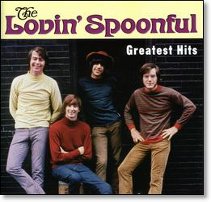 |
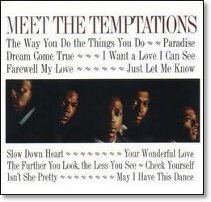 |
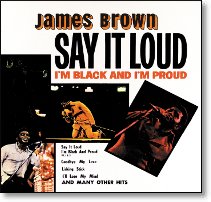 |
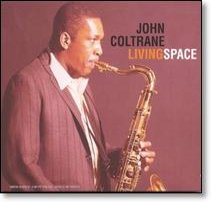 |
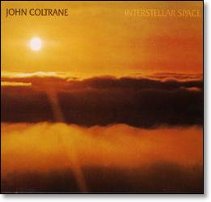 |
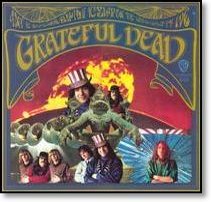 |
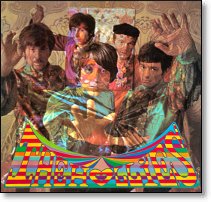 |
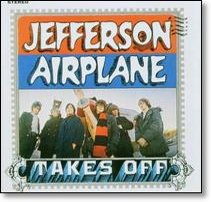 |
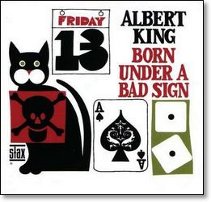 |
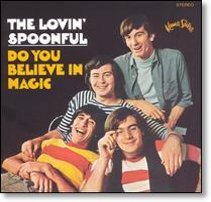 |
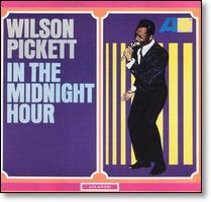 |
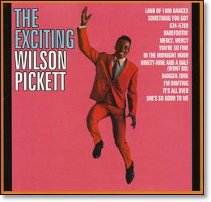 |
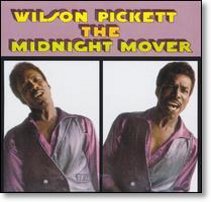 |
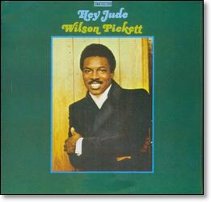 |
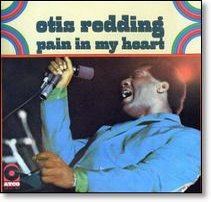 |
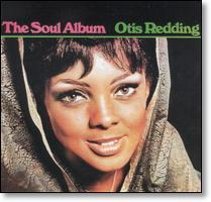 |
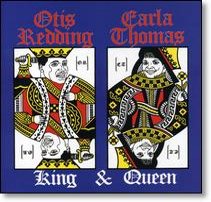 |
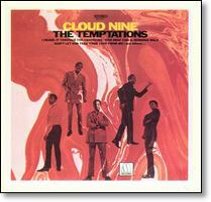 |
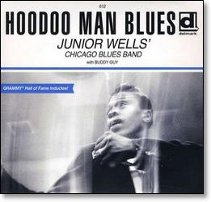 |
The Lovin' Spoonful: Greatest Hits (1965-70 [2000], Buddha): John Sebastian's jug band, named for a line in a Mississippi John Hurt song, scored seven top-ten singles in 1965-66, with more non-hits up to 1970. The hits have a crystaline clarity to them, but after the first four had an identifiable similarity, "Summer in the City" and "Nashville Cats" emerged as flukes. Listen to the albums in order and you can almost hear the money people cajoling Sebastian: write more hits, or at least write more. The first album fell back on blues filler, which made it safer but more substantial. With 26 cuts, 12 post-"Nashville Cats," this runs toward too much: the 12-cut Platinum & Gold Collection (2003, BMG Heritage) or the 14-cut Playlist (2008, Legacy) might be better bargains, but this offers more context. A- [R]
SSgt Barry Sadler: Ballads of the Green Berets (1966 [1997], Collectors' Choice): The title "Ballad," with its snare figure and bugle filigree, was a novelty hit, number one for five weeks in early 1966 -- a backlash against opponents of the newly Americanized Vietnam War that inadvertently showed how narrow-minded the case for the war was. The album is filled out with modestly orchestrated tunes, with Sadler calmly talking his way through stories of soldiers going to war and dying honorably without any details about where or why they fought, who or why they killed. He did a tour in Vietnam, which ended when he jammed his knee on a punji stick, leaving him with a severe infection. His second single, "The A Team," stiffed, and he never recorded another album. He tried his hand at writing war fiction, naming his hero after the Roman soldier who stabbed Jesus during his crucifixion. In 1978 he shot and killed a songwriter. He was convicted of manslaughter, sentenced to 4-5 years in jail, but an appeal let him out after 21 days. He moved to Guatemala, and got shot himself in 1988. He was flown back to the US, was in a coma for several months, and died of complications a year later, at age 49 -- a piss poor example of a patriot, I'd say. D [R]
The Temptations: Meet the Temptations (1964, Gordy): I doubt there's much to be gained by listening to album-by-album of Motown in the 1960s, especially since their first Greatest Hits series appeared around 1966, with their canon-establishing sequences. (I'm writing this after the Stevie Wonders below. Turns out he didn't make a really good album until 1972's Talking Book, although several lead-off singles might have gotten your hopes up.) The best of all the first wave Greatest Hits was by the Temptations -- for long the most cherished of all my LPs (didn't hurt that my copy was sleeveless, pressed in red plastic with Chinese print -- made it seem like a rare archaeological find). Also, later Temptations best-ofs invariably tacked on "Psychedelic Shack" and "Papa Was a Rolling Stone" -- great hits but out of place alongside their early run. This debut album only showcases one of their hits -- "The Way You Do the Things You Do" -- but they thought the filler important enough to list their titles on the cover. And funny thing: if you skip it and just play the rest, you'll find what sounds like a great lost Isley Brothers album -- at least until "Just Let Me Know," where they slow it down and the familiar voices emerge. A- [R]
Briefly Noted
The Beau Brummels: Introducing the Beau Brummels (1965, Autumn): San Francisco group, took the retro hint from the British Invasion and contextualized it more subtly, but at least they came up with one of the indelible hits of the era ("Laugh Laugh") and put more work than usual into the filler. B+(**) [R]
James Brown: Papa's Got a Brand New Bag (1965, King): The hardest working man in soul business released 31 albums during the 1960s, most unavailable (except possibly through comps), so this will be spotty; two parts of his big hit packaged with older tracks, which means the album (unlike the single) isn't cutting edge, but still who the hell has caught up? B+(***) [R]
James Brown: Say It Loud I'm Black and I'm Proud (1969, King): One last greath anthem for the decade, done in two parts, of course, plus one prophetic bit of nonsense, "Licking Stick," that opened up funk for the next decade, and the usual filler, but even a small organ feature's got soul. A- [R]
Buffalo Springfield: Last Time Around (1968, Atco): Third and last album, as stars Stephen Stills and Richie Furay and Jim Messina were heading off to worse bands to join while Neil Young would wind up doing fine on his lonesome; nothing much here that would long be remembered with the band, unless you count "Kind Woman." B [R]
The Byrds: Dr. Byrds and Mr. Hyde (1969, Columbia): After the artistic triumph (and commercial debacle) of Sweetheart of the Rodeo, Gram Parsons and Chris Hillman left, almost making this the first Roger McGuinn solo; it's schizophrenic all right, but only because McGuinn's bag of tricks only works half the time -- when he's adapting something old, like "Old Blue," or leaning on someone brilliant, like Parsons ("Drug Store Truck Drivin Man") although less so his old standby Dylan. B [R]
The Byrds: The Ballad of Easy Rider (1969, Columbia): McGuinn's only credit is the title song, but Gene Parsons and Clarence White rise from the band to help out, and they thumb through their old folk records for a scattering of stuff as good as Woody Guthrie's "Deportee" and as bad as "Jack Tarr the Sailor," finding Jesus and founding the lame side of El Lay country-rock. B- [R]
The Cleanliness & Godliness Skiffle Band: Greatest Hits (1968, Vanguard): Berkeley band, hippies and proud of it, existed in various combinations 1966-70, the mainstay Phil Marsh, formerly of the Instant Action Jug Band, later the Masked Marauders; don't think they ever released any other records -- they jumped straight to the career tombstone. B+(***) [R]
John Coltrane: Dear Old Stockholm (1963-65 [1993], Impulse): A quartet recording with Roy Haynes in the drum chair, two cuts from a 1963 studio session, three from 1965, the title track an old trad piece, the rest originals; later cuts like "After the Crescent" break loose in his full fury, but the final short prayer sounds thin. B+(***) [R]
John Coltrane: Living Space (1965 [1998], Impulse): Quartet tracks, from a year so productive the label didn't bother with releasing the first four until 1978, then tacked on yet another cut for this release; not at his greatest, but he's so intense, on such a high plateau, that anyone else would be green with envy, and Tyner somehow manages to keep up. A- [R]
John Coltrane: Interstellar Space (1967 [1991], Impulse): His last album, cut five months before his death at age 40 of liver cancer, released in 1974 (the two bonus tracks first appeared in 1978); duets with Rashied Ali, the young drummer who shepherded Trane into the furthest reaches of the avant-garde -- I can't say as I've ever approved, but this is the first album I've heard where they really connect, both players in perpetually frantic motion, pouring their hearts out; or maybe I'm just getting the hang of this. A- [R]
John Coltrane: Expression (1967 [1993], Impulse): Mostly cut a week before the duos on Interstellar Space, the group is expanded here with Alice Coltrane on piano and Jimmy Garrison on bass, plus one cut features a long Pharoah Sanders flute solo; after early floundering, the group comes together impressively on the title piece, and Coltrane at least continues furiously through the bonus track. B+(**) [R]
Country Joe & the Fish: Electric Music for the Mind and Body (1967, Vanguard): San Francisco hippies with enough in the way of old left solidarity to note Stalin and Mao in their name; best thing here is an explcit rant against LBJ; worst is the closer, where they bid for psychedelic cred by sounding stoned. B+(*) [R]
Country Joe & the Fish: I-Feel-Like-I'm-Fixin'-To-Die (1967, Vanguard): Had this album back in the day, the title cut's "whopee, we're all going to die" refrain one of the few Vietnam War refrains to capture the madness of the moment, so imagine my surprise when I eventually discovered they had just changed the words to "Muskrat Ramble"; nothing else like that here, but "Who Am I" is a good question-song, and "Eastern Jam" jams. B+(*) [R]
Cream: Fresh Cream (1966, Polydor): Debut album by the formidable English power trio, bluesman Eric Clapton with arena hound Jack Bruce and jazz-oriented Ginger Baker, seeking a synthesis they only occasionally arrive at -- "I Feel Free," "I'm So Glad," above all "Rollin' and Tumblin'." B+(**) [R]
Cream: Wheels of Fire (1968, Polydor): The studio side starts with "White Room" with Jack Bruce at his most imperial, but again depends on blues standards for its most bankable riffs; the "Live at the Fillmore" side offers four songs, two stretched out past 16 minutes, "Spoonful" with a lot of guitar, "Toad" with a lot of drums. B+(*) [R]
Cream: Goodbye (1968 [1969], Polydor): Their break up album: three leftover studio tracks, three live ones from a gig in Los Angeles -- a prelude to two live albums in 1970, as if Jack Bruce and Ginger Baker really were the jazz virtuosos of their dreams (Eric Clapton, of course, would have been satisfied as a blues hobo); one of the studio tracks is a keeper ("Badge"), and the live cuts rock out. B+(*) [R]
The Doors: Waiting for the Sun (1968, Elektra): Third album, starts with one of their minor hits ("Hello, I Love You"), but midway their artsy pretensions fail them, with the mock-operatic "Spanish Caravan" and some kind of march (or chain gang chant) in "My Wild Love." B [R]
The Doors: The Soft Parade (1969, Elektra): Horn charts and strings clutter up half the cuts, hardly compensating for their mediocrity -- for contrast, see "Shaman's Blues," which isn't hit material but shows how easy quality filler can be; Jim Morrison's future chances as a jazz crooner: nil. B- [R]
Grateful Dead: Grateful Dead (1967, Warner Brothers): First album; those who missed it will be surprised at how fast and precise the mother of all jam bands could actually play; but from the start the songs were just frameworks for improvising, and while in the studio they didn't run on as long as they did live, they do give you a real taste of that here. A- [R]
Grateful Dead: Anthem of the Sun (1968, Warner Brothers): Second album, five cuts including one up at 15:17, no hooks, no real leadership, the vocals scattered and garbled, an attempt to show how far out you can go, yet once everyone shuts up they can develop an impressive groove, even around drums with no ordinary time. B [R]
Grateful Dead: Aoxomoxoa (1969, Warner Brothers): Aside from the whispered, garbled 8:30 dirge "What's Become of the Baby" and the somewhat fractured 5:45 closer ("Cosmic Charlie") -- a second side to skip unless you're as stoned as they were -- the songs are tight and tuneful and short -- the St. Stephen you'll want is on Live/Dead -- the vocals slapped on with a big silly grin, prepping but not quite ready to go mersh. B+(***) [R]
Isaac Hayes: Hot Buttered Soul (1969, Stax): Songwriter-producer turned impressario, orchestrated and rapped over these long rhythm tracks; I recall a poll once that picked "hot buttered rum" as the food/drink that sounded better than it tasted; "hot buttered soul" should be better, but turns out it isn't. B [R]
The Hollies: Here I Go Again (1964, Imperial): First album, at least in the US (UK version is Stay With the Hollies), shows them trying to raise their harmonies to Beatles standards, applied to the sort of standards the Beatles practiced on before writing their own songbook -- "Stay," "Memphis," "Lucille," "Rockin' Robin," "Do You Love Me" -- except the Beatles matured much earlier, and never bothered with Glen Campbell. B [R]
The Hollies: Hear! Here! (1965, Imperial): Second US album, skipping the UK-only In the Hollies Style (7/12 originals by "Ransford": Allen Clarke, Tony Hicks, and Graham Nash), drawing on the eponymous UK-only third album, and including their biggest single to date, "Look Through Any Window"; still about half covers, but they've tightened up their guitars and harmonies to where they all sound of a piece. B+(*) [R]
The Hollies: Bus Stop (1966, Imperial): Their biggest hit was penned by Graham Gouldman, the other covers more predictable as they improve on Fred Neil and Paul Simon and liven things up with Chuck Berry and Dozier-Holland, and the originals seem to have hit a plateau, their sound down so pat there's no longer anything interesting about it. B+(*) [R]
The Hollies: Evolution (1967, Epic): A breakthrough in songwriting -- the first time they had enough original material they didn't have to work in covers -- makes this their first coherent album, nicely balanced, each song potentially memorable, with the harpsichord the most pleasing surprise; I (accidentally) programmed the 12-track single-less UK release instead of the 10-cut US, then added "Carrie Anne" from the latter as a bonus; that's the way a CD reissue should do it, but the only ones I see pack in more (Sundazed) or much more. A- [R]
Jefferson Airplane: Takes Off (1966, RCA): Pre-Grace Slick, Marty Balin dominates although Signe Anderson provides a female counterpoint, unusual at the time; not much here I know from their Worst Of but they built their psychedelic fuzz on a solid blues foundation, floating the hippie anthem "Let's Get Together" on a tough "Tobacco Road." A- [R]
Jefferson Airplane: After Bathing at Baxter's (1967 [2003], RCA): After Grace Slick arrived, Surrealistic Pillow split neatly into inspired hits and indifferent filler; this third quickie reverses course, elevating the filler with intense guitar work and democratizing the vocals like they were in church; reissue goes further, swapping in a longer live rave for the single. B+(**) [R]
Jefferson Airplane: Crown of Creation (1968, RCA): Fourth album, the cover reminds me of Atomic Basie but the music peers inward, everyone contributing but not much, finally opening up with the title cut and finishing strong with "House at Pooneil Corners." B+(*) [R]
Jefferson Airplane: Bless Its Pointed Little Head (1968 [1969], RCA): Live album, taken from concert stands at both Fillmores; half new songs, "Somebody to Love" the only obligatory hit, all muscled up whether stretched or truncated, only "Bear Melt" topping ten minutes. B+(**) [R]
Albert King: Born Under a Bad Sign (1966-67 [1967], Stax): King's soul ballads -- covers like "I Almost Lost My Mind" and "The Very Thought of You" -- are received but their lack of pretension works out nicely; his guitar is another story: why people pay attention. A- [R]
The Lovin' Spoonful: Do You Believe in Magic (1965 [2002], Buddha): First album, two hit singles here (plus "Younger Girl," which I remember as a third), the filler drawn from blues, climaxing in a guitar raveup as if they were practicing for a battle of the bands with the Yardbirds; while I remember the hits from back in the day, those blues I mostly know from other sources, discovered later even when they weren't. A- [R]
The Lovin' Spoonful: Daydream (1966 [2003], Buddha): Second album, rushed out to repackage two hit singles, the filler safer -- including anthems for jug band music and rock and roll -- except for "Bald Headed Lena," a path they hinted at but never really took. B+(**) [R]
The Lovin' Spoonful: Hums of the Lovin' Spoonful (1966 [2003], Buddha): Third album, the last three top-ten singles, the filler now mostly of John Sebastian songs, his profligacy less good for more hits than for more idiosyncratic misses; also shows they're more jug band than blues juggernaut. B+(**) [R]
The Mamas and the Papas: If You Can Believe Your Eyes and Ears (1966, Dunhill): Merging members of folkie groups the New Journeymen and the Mugwumps, they devised a sunny sound with multipart vocals for the two huge singles here -- "California Dreamin'" and "Monday, Monday" -- although I never cared for the latter; the rest is split between lower-keyed originals ("Go Wher You Wanna Go," "Somebody Groovy") and oddly mistreated covers -- "Spanish Harlem," "The In-Crowd," a goopy "Do You Wanna Dance?" where the answer is certainly "no." B+(*) [R]
Wilson Pickett: In the Midnight Hour (1965, Atlantic): First album with Atlantic, kicked off with one of the signature soul hits of the decade, a little rough after that but no fighting it, he can outshout his horns, and has the charisma to raise filler to a higher energy orbit. A- [R]
Wilson Pickett: The Exciting Wilson Pickett (1966, Atlantic): Second Atlantic album, waited long enough after the first one to get their hits lined up, and they got the branding right: no soul singer is wound up tighter, more explosive, more flat out exciting. A [R]
Wilson Pickett: The Wicked Pickett (1966, Atlantic): Got rushed and made a covers album, and while he appropriates stompers like "Mustang Sally" and "Knock on Wood," he can't reclaim "Ooh Poo Pah Doo" or "Time Is on My Side" (maybe from Bobby Womack, but not like Otis Redding did with the Rolling Stones). B+(**) [R]
Wilson Pickett: The Sound of Wilson Pickett (1967, Atlantic): Leads off with another dance number, always a smart move, and hits all the appropriate whoops and hollers, something more than just going through the motions but that alone is his most memorable feat. B+(***) [R]
Wilson Pickett: I'm in Love (1968, Atlantic): Love songs, maybe not so lovable songs -- he uses "Stagger Lee" to pick up the pace, which is where he's strongest -- but he makes an impression with all of them, especially "She's Lookin' Good"; only two songs top three minutes, so ten of them add up to a short 25:39. B+(***) [R]
Wilson Pickett: The Midnight Mover (1968, Atlantic): The single builds on his big hit, and everything else tweaks his past in search of a revitalized future, which he mostly finds; still short, but "Let's Get an Understanding" is an overlooked signpost for the decade. A- [R]
Wilson Pickett: Hey Jude (1969, Atlantic): Bad idea to cover the Beatles' lame ballad, but Wicked throws so much backbone into it he manages to hold it up for 4:07; nothing else cracks 3:00, not "Born to Be Wild," which couldn't be truer, or "A Man and a Half," which doesn't need to be stretched to leave you satisfied. A- [R]
Procol Harum: A Salty Dog (1969, A&M): Third album, widely regarded as their peak but hard to get a handle on the band -- an ever-changing studio concoction built to cash in on the undeniable "A Whiter Shade of Pale"; most notable songs in one pass: "The Milk of Human Kindness," philosophically grand, and "Boredom," decidedly not. B+(**) [R]
Otis Redding: Pain in My Heart (1964, Atco): First album, the title cut unmistakable from the first horn note, then he does "The Dog," "Stand by Me," "You Send Me," and later "Lucille" -- proof that he could steal from the rich; his originals were buried on the second side, including "These Arms of Mine" and "Security" -- you must have heard those already. A [R]
Otis Redding: The Soul Album (1966, Atco): Fourth album, knocking them off on at a six-month clip, this is the least spectacular of his studio albums, the fault of less memorable songs although he also managed to misjudge "Chain Gang" and "Nobody Knows You When You're Down and Out"; I'd knock it down another notch, but it turns out he really did have only one more year to live. A- [R]
Otis Redding/Carla Thomas: King & Queen (1967, Atco): A side show -- Thomas never amounted to more on her own than any of Marvin Gaye's partners, but she was better known, partly for dog-walking father Rufus Thomas, and partly for the title bestowed here; Redding carries the songs, and his rhythm section carries him, which is more than enough, but far short of epochal. A- [R]
Sun Ra: Outer Spaceways Incorporated (1968 [1993], Black Lion): Adds one song to the five released in 1971 as Pictures of Infinity; at first this sounds like John Gilmore trying to jump Albert Ayler, then the drummer gets some, someone quasi-sings; finally they swing into orbit, and let the flute float in space. B+(**) [R]
The Temptations: The Temptations Sing Smokey (1965, Gordy): Rather than the usual practice of wrapping their latest hit in a wad of fish paper, their second album goes for a concept, though Robinson was still more label stablehand than tribute star -- lets them repeat "The Way You Do the Things You Do," roll up a couple more hits (especially "My Girl"), and work on their soft side for an album that's just a little too consistent. B+(***) [R]
The Temptations: With a Lot o' Soul (1967, Gordy): Sixth album -- Rhapsody is missing some -- their first top ten album (although all but the first topped the R&B chart, as would the next four); four hit singles, the lowest 14 pop, 3 R&B, and they hardly stand out but I did notice that they they drag a bit they wind up sounding like the Four Tops. B+(***) [R]
The Temptations: Wish It Would Rain (1968, Gordy): Soon-to-be-fired David Ruffin sings five of six songs on the first side, including the title hit; second side falls apart, although "No Man Can Love Her Like I Do" has some inadvertent novelty charm. B+(*) [R]
The Temptations: Cloud Nine (1969, Gordy): Dennis Edwards takes over for David Ruffin, and Norman Whitfield becomes the album's sole producer after all the jockeying on recent albums; the title cut is as strong as any, though not danceable like the old days, and everything else clicks in -- sure, they think they can sell this as "psychedelic," but it's really soul. A- [R]
Junior Wells' Chicago Blues Band: Hoodoo Man Blues (1965, Delmark): Harmonica player, a strong but sly singer when he gets the chance as they did on his debut, stepping out front of his long-time collaborator, guitarist Buddy Guy; this has a reputation as a Chicago blues classic -- number eight on Robert Santelli's The Best of the Blues list -- and comes damn close. A- [R]
The Who: The Who Sings My Generation (1965, MCA): First album, their title hit ending the first side, "The Kids Are Alright" launching the second, the rest filler, the only covers from James Brown -- a statement, even if they don't hold a candle to the originals; a couple hints of where they would go, several stagnant blues efforts, an instrumental ("The Ox") that suggests what they may have meant by "maximum r&b." B+(**) [R]
The Who: A Quick One (Happy Jack) (1966, Polydor): Second album, where they find a unified voice and sound, although non-Townshend songs rarely hit the mark (Entwistle's "Boris the Spider" the flukey exception), and Townshend's title cut was his first mini-opera, although the real prize is the single. B+(***) [R]
Stevie Wonder: Up-Tight (1966, Tamla): After a handful of "Little Stevie" albums searching for novelty hits, the 15-year-old reintroduces himself as an upbeat dance powerhouse, although only the title cut proves indelible. B [R]
Stevie Wonder: Down to Earth (1966, Tamla): Tempting to call this his folkie album -- "Mr. Tambourine Man," "Sixteen Tons," "Bang Bang" -- but he also covers (and can't top) the Four Tops. B- [R]
Stevie Wonder: For Once in My Life (1968, Tamla): Title cut is one of his all-time great singles, which like last year's "I Was Made to Love Her" has done wonders for his voice, so he's finally able to lift up filler like "Sunny" -- probably the best version ever -- and "The House on the Hill," while turning a trifle like "Shoo-Be-Doo-Be-Doo-Da-Day" into a hit. B+(**) [R]
Stevie Wonder: My Cherie Amour (1969, Tamla): The title cut, which dates back to 1966, showed he can slow it down and still make it work; but when he get to the filler he has to turn the heat up. B+(***) [R]
Legend: B+ records are divided into three levels, where more * is better. [R] indicates record was reviewed using a stream from Rhapsody ([X] is some other identified stream source; otherwise assume a CD). The biggest caveat there is that the packaging and documentation hasn't been inspected or considered, and documentation is especially important for reissues. But also my exposure to streamed records is briefer and more limited, so I'm more prone to snap judgments -- although that's always a risk.
For this column and the previous 109, see the archive. Total records reviewed: 3746 (3302 + 444).
Additional Consumer News
Previously rated 1960s albums by artists reviewed here:
- James Brown: Think! (1960, Polydor) A-
- James Brown: Live at the Apollo (1963, Polydor) A
- James Brown: Live at the Apollo, Volume 2 (1968, Polydor) A-
- James Brown: Gettin' Down to It (1969, Verve) B
- The Byrds: Mr. Tambourine Man (1965, Columbia) A-
- The Byrds: Turn! Turn! Turn! (1966, Columbia) B
- The Byrds: Fifth Dimension (1966, Columbia) B+
- The Byrds: Younger Than Yesterday (1967, Columbia) C+
- The Byrds: The Notorious Byrd Brothers (1968, Columbia) A-
- The Byrds: Sweetheart of the Rodeo (1968, Columbia) A
- John Coltrane/Don Cherry: The Avant Garde (1960, Atlantic) B
- John Coltrane: My Favorite Things (1960, Atlantic) A-
- John Coltrane: Coltrane's Sound (1960, Atlantic) A-
- John Coltrane: Coltrane Plays the Blues (1960, Atlantic) B+
- John Coltrane: Olé Coltrane (1961, Atlantic) A
- John Coltrane: Africa/Brass (1961, Impulse) A-
- John Coltrane: Live at the Village Vanguard (1961 [2008], Impulse) A-
- John Coltrane: Coltrane (1962, Impulse) A-
- John Coltrane: Ballads (1962, Impulse) A
- John Coltrane: Impressions (1961-63 [2008], Impulse) B+(**)
- John Coltrane/Johnny Hartman: John Coltrane and Johnny Hartman (1963 [1995], Impulse) B+
- John Coltrane: Coltrane Live at Birdland (1963, Impulse) A
- John Coltrane: Afro Blue Impressions (1963, Pablo, 2CD) A-
- John Coltrane: Crescent (1964, Impulse) A
- John Coltrane: A Love Supreme (1964 [1965], Impulse) A+
- John Coltrane: The John Coltrane Quartet Plays (1965 [1997], Impulse) A-
- John Coltrane/Archie Shepp: New Thing at Newport (1965 [2000], Impulse) B+(**)
- John Coltrane: Ascension (1965 [2000], Impulse) B+
- John Coltrane: Sun Ship (1965 [1995], Impulse) C+
- John Coltrane: Kulu Sé Mama (1965, Impulse) B+
- John Coltrane: First Meditations (1965, Impulse) B
- John Coltrane: Meditations (1965, Impulse) B
- John Coltrane: Live at the Village Vanguard Again (1966 [1997], Impulse) B+
- John Coltrane: Stellar Regions (1967 [1995], Impulse) B
- Cream: Disraeli Gears (1967, Polydor) A-
- The Doors: The Doors (1967, Elektra) A-
- The Doors: Strange Days (1967, Elektra) B+
- Grateful Dead: Live/Dead (1969, Warner Brothers) A-
- Jefferson Airplane: Surrealistic Pillow (1967, RCA) B+
- Jefferson Airplane: Volunteers (1969, RCA) B+
- Albert King: Live Wire/Blues Power (1968, Stax) B+
- Otis Redding: The Great Otis Redding Sings Soul Ballads (1965, Atco) A
- Otis Redding: Otis Blue: Otis Redding Sings Soul (1965, Atco) A+
- Otis Redding: Complete and Unbelievable: The Otis Redding Dictionary of Soul (1966, Atco) A
- Otis Redding: The Dock of the Bay (1967 [1968], Atco) A-
- Otis Redding: Love Man (1967 [1969], Atco) A-
- Sun Ra: The Futuristic Sounds of Sun Ra (1961 [1962], Savoy) A-
- Sun Ra: Cosmic Tones for Mental Therapy/Art Forms for Dimensions Tomorrow (1961-63 [1992], Evidence) A-
- Sun Ra: Other Planes of There (1964 [1992], Evidence) B+
- Sun Ra: Heliocentric Worlds: Volumes 1 and 2 (1965 [2005], ESP-Disk) B+(***)
- Sun Ra: Monorails and Satellites (1966, Evidence) B-
- Sun Ra: Nothing Is . . . (1966 [2005], ESP-Disk) B+(**)
- Sun Ra: Strange Strings (1966-67 [2009], Atavistic) B+(***)
- Sun Ra: Atlantis (1967-69 [1993], Evidence) B
- Sun Ra: Holiday for Soul Dance (1968-69, Evidence) B
- Sun Ra: Out There a Minute (1968 [1989], Restless/Blast First) B-
- Junior Wells: It's My Life, Baby (1965 [1988], Vanguard) A-
- The Who: The Who Sell Out (1967 [1995], Polydor) B+
- The Who: Meaty, Beaty, Big and Bouncy (1965-68 [1971], MCA) A+
- The Who: Tommy (1969, MCA) A-
Notes
Joe Yanosik provided this list of 1960s records he think Robert Christgau graded (or would have graded) A- or better. I've omitted reissues and compilations, added my grades. The notes in brackets are Joe's, identifying some subsequent album or compilation that leads him to the inference. (I've omitted many of these.) I moved the dates into the credits, and sorted by artist name.
- The Band: The Band (1969, Capitol) [A+]
- The Beach Boys: Pet Sounds (1966, Capitol) [A+]
- The Beach Boys: Smiley Smile (1967, Capitol): Smiley Smile/Wild Honey [B+]
- The Beach Boys: Wild Honey (1967, Capitol) [A]
- The Beatles: Rubber Soul (1965, Capitol) [A]
- The Beatles: Revolver (1966, Capitol) [A]
- The Beatles: Sgt. Pepper's Lonely Hearts Club Band (1967, Capitol) [A]
- The Beatles: Magical Mystery Tour (1967, Capitol) [A-]
- The Beatles: The Beatles (1968, Apple) [B+]
- The Beatles: Abbey Road (1969, Capitol) [B]
- Big Brother and the Holding Company: Big Brother and the Holding Company (1967, Mainstream): Janis [B+]
- Big Brother and the Holding Company: Cheap Thrills (1968, Columbia): Janis [A]
- James Brown: Cold Sweat (1967, King) [-]
- James Brown: James Brown Sings Out of Sight (1968, Smash): Star Time [-]
- James Brown: Live at the Apollo Volume 2 (1968, King) [A-]
- Buffalo Springfield: Buffalo Springfield Again (1967, Atco): Buffalo Springfield [B+]
- Buffalo Springfield: Last Time Around (1968, Atco) [B]
- Jerry Butler: The Iceman Cometh (1968, Mercury) [-]
- Jerry Butler: Ice on Ice (1969, Mercury): The Best Of: 20th Century Masters: Millennium Collection [-]
- The Byrds: The Notorious Byrd Brothers (1968, Columbia) [A-]
- The Byrds: Sweetheart of the Rodeo (1968, Columbia) [A]
- Johnny Cash: Johnny Cash at Folsom Prison (1968, Columbia): The Essential [B+]
- Joe Cocker: With a Little Help From My Friends (1969, A&M) [B]
- Joe Cocker: Joe Cocker! (1969, A&M) [B+(***)]
- Leonard Cohen: Songs of Leonard Cohen (1968, Columbia): The Essential [A]
- John Coltrane: A Love Supreme (1965, Impulse) [A+]
- Cream: Fresh Cream (1966, Polydor) [B+(**)]
- Cream: Goodbye (1969, Polydor) [B+(*)]
- Creedence Clearwater Revival: Green River (1969, Fantasy): The Long Road Home [A-]
- Creedence Clearwater Revival: Willy and the Poorboys (1969, Fantasy) [A]
- Miles Davis: In a Silent Way (1969, Columbia) [A]
- Delaney & Bonnie: The Original Delaney & Bonnie (1969, Elektra): The Best of Delaney & Bonnie [A]
- The Doors: The Doors (1967, Elektra): The Very Best of the Doors [A-]
- Bob Dylan: Bringing It All Back Home (Columbia) [A]
- Bob Dylan: Highway 61 Revisited (1965, Columbia) [A]
- Bob Dylan: Blonde on Blonde (1966, Columbia) [A-]
- Bob Dylan: John Wesley Harding (1967, Columbia) [A]
- Bob Dylan: Nashville Skyline (1969, Columbia) [A-]
- The Everly Brothers: Roots (1968, Warner Bros.) [B]
- Fairport Convention: Fairport Convention (1969, A&M): Fairport Chronicles [-]
- Flamin Groovies: Supersnazz (1969, Epic) [A+]
- The Firesign Theatre: How Can You Be in Two Places at Once When You're Not Anywhere at All (1969, Columbia): Shoes for Industry [-]
- The Flying Burrito Bros.: The Gilded Palace of Sin (A&M): Farther Along [A+]
- Aretha Franklin: I Never Loved a Man the Way I Love You (1967, Atlantic) [A]
- Aretha Franklin: Aretha Arrives (1967, Atlantic): 30 Greatest Hits [B+(***)]
- Aretha Franklin: Lady Soul (1968, Atlantic) [A]
- Aretha Franklin: Aretha Now (1968, Atlantic) [A]
- The Fugs: The Village Fugs (1965, ESP-Disk): The Fugs First Album [A-]
- Gilberto Gil: Gilberto Gil [Frevo Rasgado] (1968, Philips) [-]
- Grateful Dead: Grateful Dead (l1967, Warner Bros.) [A-]
- Grateful Dead: Anthem of the Sun (1968, Warner Bros.) [B]
- Grateful Dead: Aoxomoxoa (1969, Warner Bros.) [B+(***)]
- Grateful Dead: Live/Dead (1969, Warner Bros.) [A-]
- Arlo Guthrie: Running Down the Road (1969, Reprise) [-]
- Buddy Guy: A Man and the Blues (1967, Vanguard) [-]
- The Jimi Hendrix Experience: Are You Experienced? (1967, Reprise) [A-]
- The Jimi Hendrix Experience: Electric Ladyland (1968, Reprise) [A]
- The Hollies: Evolution (1967, Epic) [A-]
- Mississippi John Hurt: Today! (Vanguard): Rediscovered [-]
- Mississippi John Hurt: The Immortal Mississippi John Hurt (1967, Vanguard): Rediscovered [A]
- J.B. Hutto & His Hawks: Hawk Squat! (1968, Delmark) [-]
- Jefferson Airplane: Crown of Creation (1968, RCA): 2400 Fulton Street/Anthology [B+(*)]
- Janis Joplin: I Got Dem Ol Kozmic Blues Again Mama! (1969, Columbia): Janis [B+]
- B.B. King: Live at the Regal (1965, ABC) [A-]
- B.B. King: Blues Is King (1967, Bluesway): King of the Blues [-]
- The Kinks: Face to Face (Reprise) [-]
- The Kinks: Something Else by the Kinks (1967, Reprise) [-]
- The Kinks: Arthur (or the Decline and Fall of the British Empire) (1969, Reprise) [-]
- The Kinks: The Kinks Are the Village Green Preservation Society (1969, Reprise) [-]
- Jerry Lee Lewis & Linda Gail Lewis: Together (1969, Smash) [-]
- Love: Forever Changes (1967, Elektra) [A-]
- The Lovin' Spoonful: Do You Believe in Magic (1965, Kama Sutra) [A-]
- Taj Mahal: Taj Mahal (1967, Columbia) [-]
- The Mamas and the Papas: If You Can Believe Your Eyes and Ears (1966, Dunhill): Gold [B+(*)]
- MC5: Kick Out the Jams (1969, Elektra) [B+]
- Moby Grape: Moby Grape (1967, Columbia) [-]
- Mother Earth: Living With the Animals (1968, Mercury) [-]
- Mother Earth: Make a Joyful Noise (1969, Mercury) [-]
- The Mothers of Invention: We're Only in It for the Money (1968, Verve) [B-]
- Randy Newman: Randy Newman (1968, Reprise) [B+]
- Van Dyke Parks: Song Cycle (1968, Warner Bros.) [C+]
- Wilson Pickett: Hey Jude (1969, Atlantic): The Definitive Collection [A-]
- Otis Redding: The Great Otis Redding Sings Soul Ballads (1965, Volt): The Best of Otis Redding [A]
- Otis Redding: Otis Blue (1965, Volt) [A+]
- Otis Redding: The Soul Album (1966, Volt): The Best of Otis Redding [A-]
- Otis Redding: Complete and Unbelievable: The Otis Redding Dictionary of Soul (1966, Volt) [A]
- Otis Redding/Carla Thomas: King & Queen (1967, Stax) [A-]
- Otis Redding: The Dock of the Bay (1968, Volt) [A-]
- Otis Redding: Love Man (1969, Atco) [A-]
- Terry Riley: A Rainbow in Curved Air (1969, Columbia Masterworks) [A-]
- Smokey Robinson & the Miracles: Going to a Go-Go (1965, Tamla): The Anthology [-]
- The Rolling Stones: Out of Our Heads (1965, London) [A]
- The Rolling Stones: December's Children (and Everybody's) (1965, London) [A-]
- The Rolling Stones: The Rolling Stones Now! (1965, London) [A-]
- The Rolling Stones: Aftermath (1966, London) [A]
- The Rolling Stones: Between the Buttons (1967, London) [A]
- The Rolling Stones: Flowers (1967, London) [A-]
- The Rolling Stones: Beggars Banquet (1968, London) [A]
- The Rolling Stones: Let It Bleed (1969, London) [A+]
- The Serpent Power: The Serpent Power (1967, Vanguard) [-]
- Sir Douglas Quintet: Mendocino (1969, Smash) [-]
- Sly & the Family Stone: Stand! (1969, Epic) [A]
- Dusty Springfield: Dusty in Memphis (1969, Atlantic) [A-]
- Rod Stewart: The Rod Stewart Album (1969, Mercury) [B]
- The Stooges: The Stooges (1969, Elektra) [A-]
- Howard Tate: Get It While You Can (1967, Verve) [A-]
- Howard Tate: Howard Tate (1969, Verve): Get It While You Can: The Legendary Sessions [-]
- The Temptations: The Temptations Sing Smokey (1965, Gordy): Anthology [B+(***)]
- Ten Years After: Undead (1968, Deram) [-]
- Ike and Tina Turner: River Deep-Mountain High (1969, A&M): Proud Mary: The Best Of [-]
- The Velvet Underground: The Velvet Underground & Nico (1967, Verve) [A+]
- The Velvet Underground: White Light White Heat (1968, Verve) [A]
- The Velvet Underground: The Velvet Underground (1969, MGM) [A+]
- Junior Wells: Hoodoo Man Blues (1966, Delmark) [A-]
- The Who: The Who Sings My Generation (1966, Decca) [B+(**)]
- The Who: The Who Sell Out (1967, Decca) [B+]
- The Who: Happy Jack (1967, Decca) [B+(***)]
- The Who: Tommy (1969, Decca) [A-]
- Stevie Wonder: I Was Made to Love Her (1967, Tamla) [B+]
- Neil Young & Crazy Horse: Everybody Knows This Is Nowhere (1969, Reprise): Greatest Hits [A]
- Frank Zappa: Hot Rats (1969, Bizarre) [B+]
- The Zombies: Odessey & Oracle (1968, Date) [A-]
Some major artists were never considered here because I don't have any real holes in my ratings database: The Band, The Beatles, Creedence Clearwater Revival, Bob Dylan, Aretha Franklin, Jimi Hendrix, The Rolling Stones, Sly & the Family Stone, The Velvet Underground. (Could have added some others from Joe's list, like the Flying Burrito Brothers, Flamin' Groovies, and Stooges, that only have one or a few 1960s records.) I am missing some early Beach Boys records -- thought about them, but didn't get around to it.
Copyright © 2013 Tom Hull.